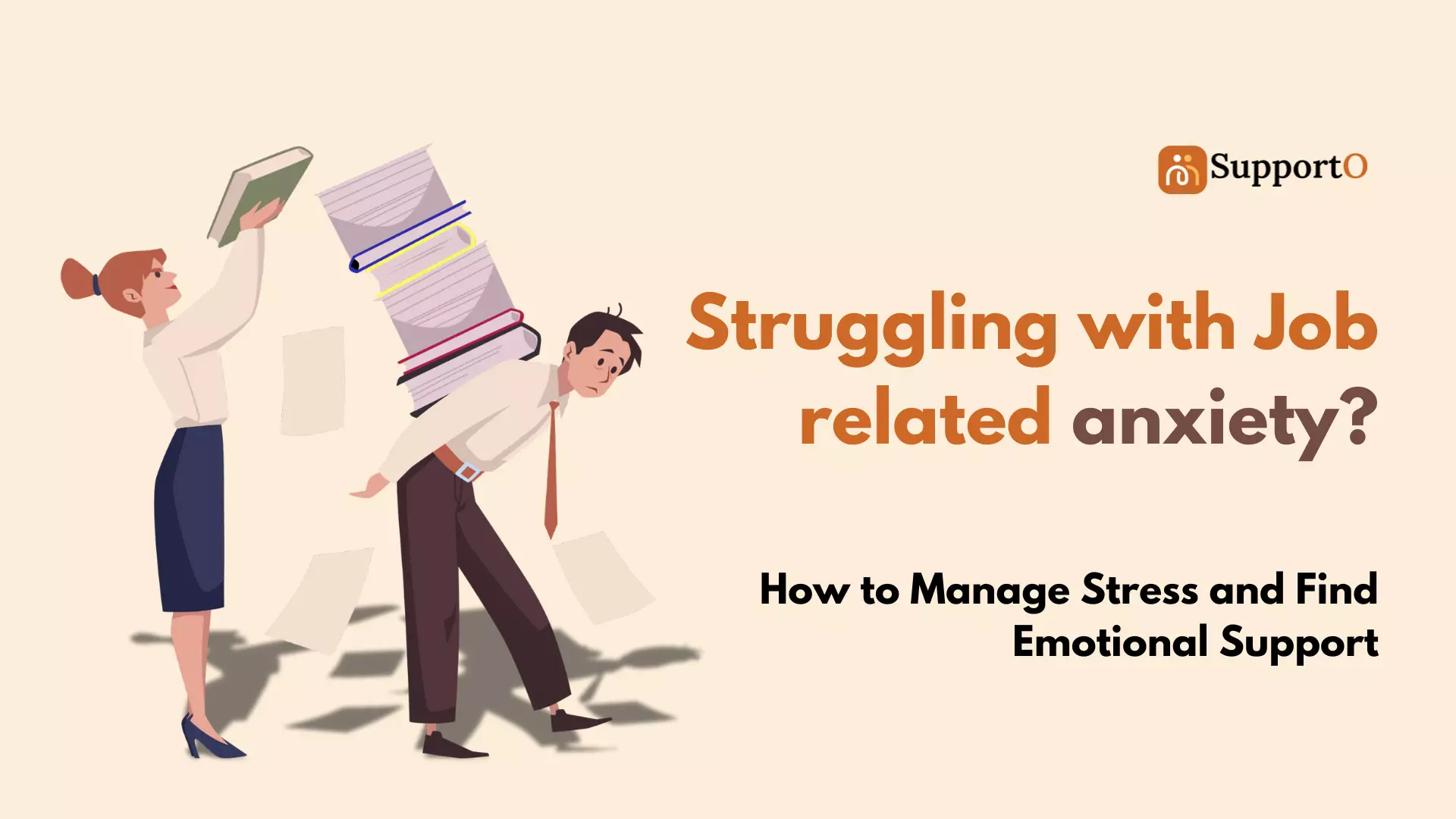Job-Related Anxiety: How to Manage Stress and Find Emotional Support
Job-related anxiety has become a widespread issue affecting millions of knowledge workers worldwide in the fast work culture we live in today. The Demand for Completing Projects, Competition in the Workplace, Insecured Jobs, and the Imbalance between Work and Life make it very stressful. If left unresolved, work-related anxiety can spiral into depression, burnout, and decline of general emotional health.
Signs and Symptoms of Job-Related Anxiety
In the physical and psychological aspects, Job-related anxiety occurs in several forms.
Most people work under the pressure of meeting others' expectations, striving for perfection, and avoiding mistakes. Coupled with strict deadlines, this creates heightened stress and anxiety. The rate of job-related anxiety is significantly higher than we often realize.
a) Some common symptoms include: Wikipedia calls it “constant onset.” Worrying over the job tasks and deadlines.
b) Difficulty sleeping or experiencing insomnia
c) Frequent headaches or stomach problems
d) Not being able to focus or be productive at work
e) Maintaining a sense of being trapped or downcast
Awareness of these early signs is key to seeking early emotional intervention, thus preventing long-lasting mood disorders.
Causes of Job-Related Anxiety
Job-related anxiety is often caused by high workloads, tight deadlines, unrealistic expectations, and job insecurity. Workplace conflicts, poor communication, and lack of work-life balance further add to stress. Addressing these issues with emotional support, counseling, and workplace wellness initiatives can help reduce anxiety. Job-related anxiety is attributed to many factors, such as:
a) High workload: Overall responsibilities cause chronic stress called occupational burnout.
b) Job Insecurity: Fear of layoffs or career stagnation can be a source of constant anxiety.
c) Toxic Work Environment: Poor workplace relationships, bullying, or micromanagement can affect mental health.
d) Poor Work-Life Integration Working long hours, without setting time aside for personal activities can be emotionally draining.
e) Unclear Job Expectations: Uncertainty about roles and responsibilities can cause confusion and stress.
How to Manage Job-Related Anxiety
Although it's challenging, job-related anxiety is manageable with the right approach. Here are a few tips to lessen the burden of workplace stressors and bolster emotional well-being:
1. Seek Professional Help
Seeking the advice of a mental health professional can also be helpful. Tools provided through therapy and counseling sessions help you cope with job stress and build resilience. Access to experienced therapists who can help with workplace-related anxiety can be found on platforms like SupportO.
2. Prioritize Self-Care
That is, taking care of you. Basic self-care practices like sleeping appropriately, eating healthy food, and taking part in physical activities are helpful in the reduction of stress.
3. Engage in some mindfulness and relaxation activities
Meditation, mindfulness techniques, and breathing exercises can help with calming the mind, as well as help with stress and stress from work.
4. Set Boundaries
Working without it is not an option. Do not check work emails after hours, and make sure you are taking regular breaks throughout the day.
5. Communicate with Your Employer
And if you are overloaded with work, talk to your supervisor about it. There is no right or wrong time to ask for help, and many people and organizations are here to offer you — and your colleagues — support.
6. Cultivating a Strong Work Routine
Properly organizing tasks and having realistic deadlines can help make work more manageable and reduce last-minute stress.
The Role of Emotional Support in Overcoming Job Anxiety
A support system can play a huge role in how you handle the stress of work. Discussing your struggles with a friend, family member or mentor can also provide you with relief and perspective. Most workplaces also offer counseling services and employee assistance programs to assist employees in coping with stress and depression. Moreover, platforms such as SupportO provide personalized mental health services so that professionals receive the appropriate support.
When to Get Professional Help
However, if that fear of work starts to seep into your everyday life, talking to a therapist will be key. Therapists who specialize in emotional well-being can provide strategies for dealing with workplace stress. SupportO and other online counseling platforms make mental health support accessible from outside the clinic.
Conclusion
Job-related anxiety is extremely real, but it is manageable with the right mindset. Focusing on self-care, therapy, boundaries, and workplace offerings are just a few ways to get back your balance and get your emotions in check. If you or someone you know is struggling with work-related stress, please reach out for help — your mental health is important. Emotional Platforms such as SupportO, can play an important role in your journey towards stress relief and emotional resilience.
